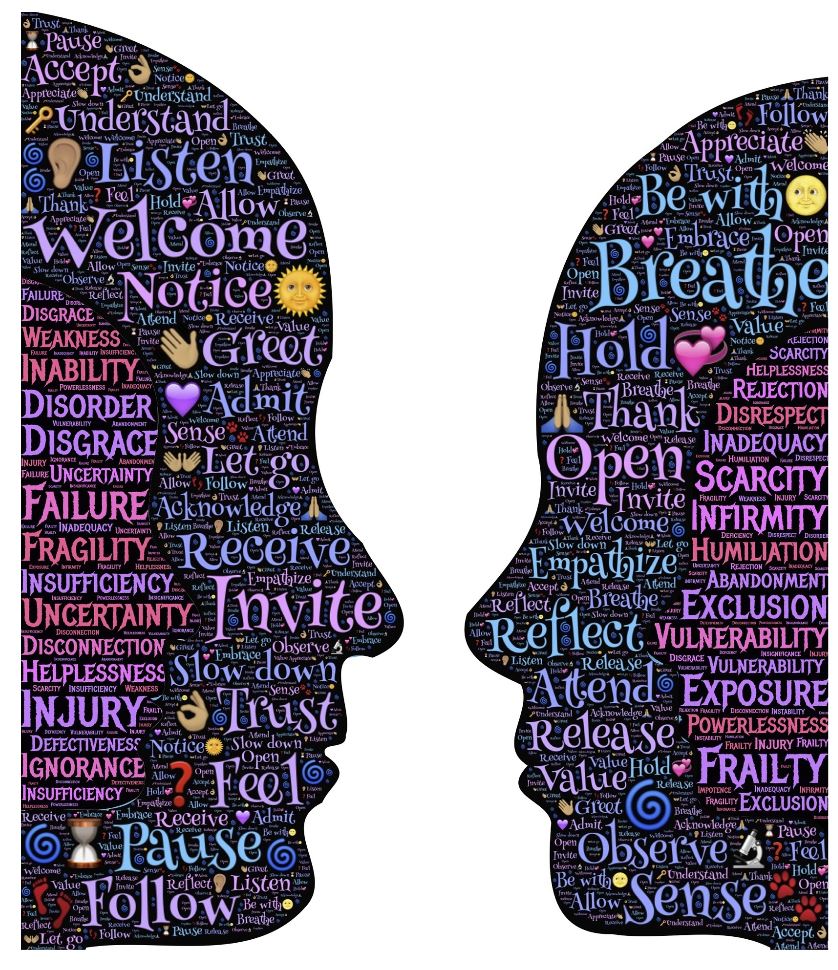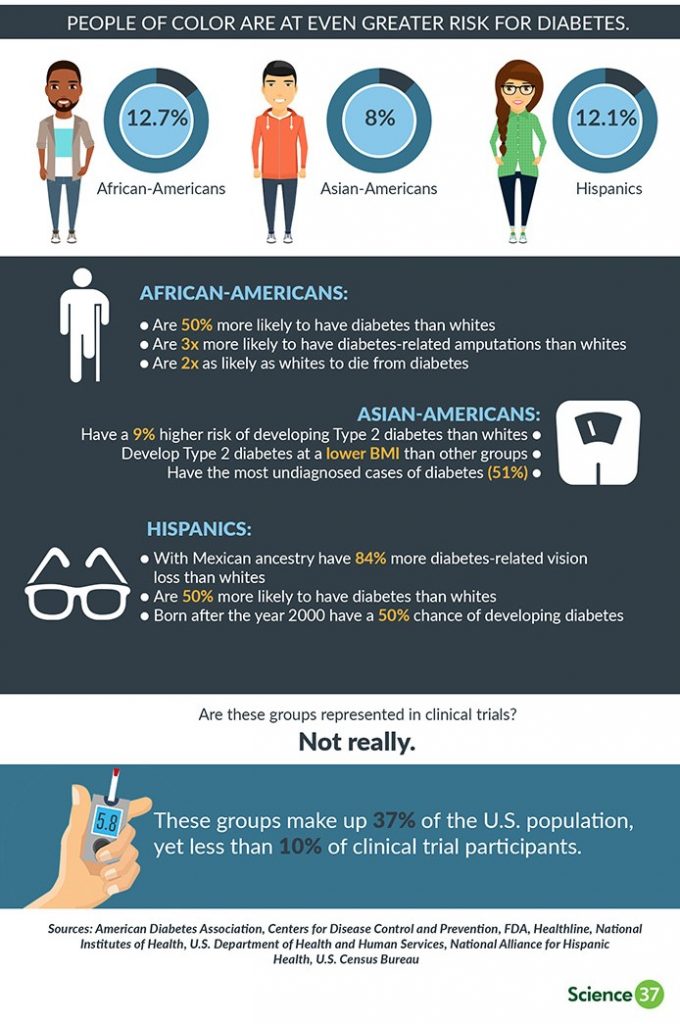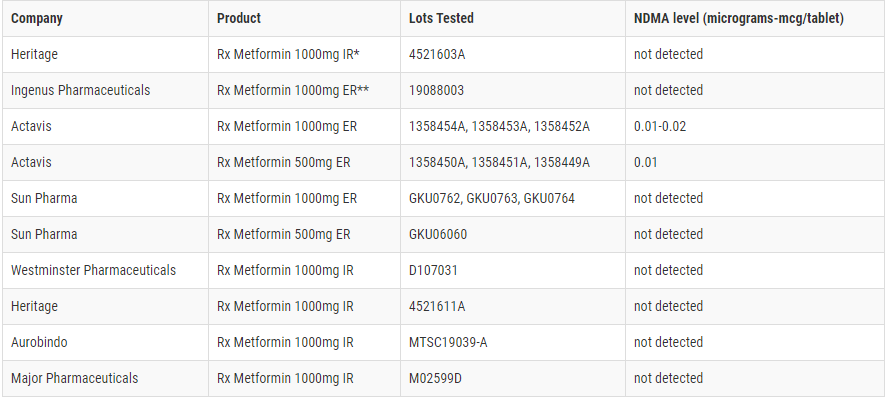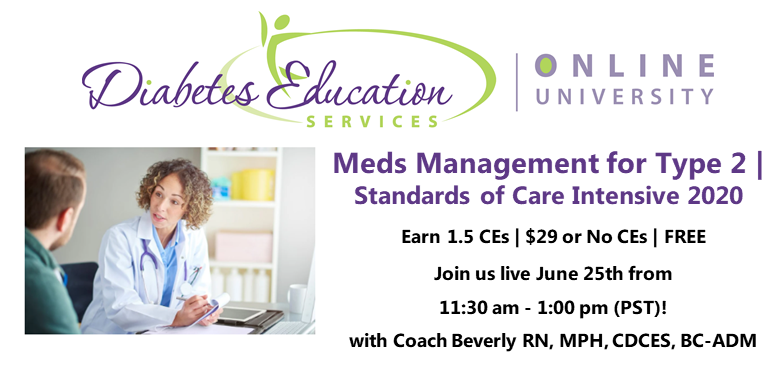Lifting People Up with our Words
What we say matters.

As educators, advocates, spouses, friends, and providers, our use of language can deeply affect the self-view of people living with diabetes every day.
Intentional communication is a powerful tool that can uncover trauma, identify barriers, and move both the provider and person with diabetes toward a greater understanding of the issues involved.
The language used in the health care setting is immensely important in determining trust, mutual respect, and meaningful long term relationships.
Many people with diabetes have experienced injustice, trauma, marginalization, and are often struggling with feelings of shame and blame.
- Let’s lift people through our commitment to careful listening.
- Let’s choose the language that is person-centered and free from judgment.
- Let’s empower our interactions by identifying and addressing trauma and the impact of social determinants.
FREE Mini Webinar – Lifting People Up with Language
Watch 2020 Lifting People Up with Language 33 minute Webinar Now
Language and Diabetes Powerpoint Handout
FREE Diabetes & Language | Quiz
Topics covered include:
- Learn phrases, words, and approaches that can be left behind.
- Describe diabetes language that is respectful, inclusive, person-centered, and imparts hope.
- Discuss how to evaluate for ACE and provide trauma-informed care.
- Practice communicating about diabetes using phrases free from judgment with a focus on a strength-based approach.
This mini-webinar is free, and no CEs are provided, but there is lots of great info!
Articles and Resources
Use of Language in Diabetes Care and Education – 2017 ADA & AADE
Language is powerful and can have a strong impact on perceptions as well as behavior. This article provides recommendations for the language used by health care professionals and others when discussing diabetes through spoken or written words whether directed to people with diabetes, colleagues, or the general public, as well as research questions related to language and diabetes.
Quick Guide on Diabetes and Language for Health Care Professionals – AADE
Empowerment vs. Compliance Model
Action for Happiness – Excellent website filled with actions we can all take to feel better every day.
Trauma-Informed Care Resources
Adverse Childhood Experiences (ACE) Resources
ACE Screening Tool and Resilience Inventory
Becoming ACE-Aware Training Program
Nadine Burke Harris, MD TED Talk on How Childhood Trauma affects health
NPR Article – Take the ACE Score and Learn what it does and doesn’t mean
Trauma-Informed Care Fact Sheet
Meds Management for Type 2 |
Standards of Care Intensive 2020
Join us on June 25, 2020, at 11:30 am (PST)
1.5 CE | $29.00 or No CEs | Free
This advanced-level course is designed to help participants determine the best medication choice based on the patient’s unique characteristics. The content incorporates the management guidelines published by the American Association of Clinical Endocrinologists (AACE) and the American Diabetes Association (ADA) Algorithms. We will discuss the role of lifestyle changes and review the pros and cons of available diabetes medications using a patient-centered approach. In addition, we discuss medication algorithms in detail. Participants not familiar with the basics of diabetes medication may benefit from first enrolling in our “Meds for Type 2” and “Insulin 101 Course.”
Register for FREE live stream webinar (no CEs).
Sign up for Diabetes Blog Bytes – we post one daily Blog Byte from Monday to Friday. And of course, Tuesday is our Question of the Week. It’s Informative and FREE! Sign up below!
[yikes-mailchimp form=”1″]Accreditation: Diabetes Education Services is an approved provider by the California Board of Registered Nursing, Provider 12640, and Commission on Dietetic Registration (CDR), Provider DI002. Since these programs are approved by the CDR it satisfies the CE requirements for the CDCES regardless of your profession.*
The use of DES products does not guarantee the successful passage of the CDCES exam. CBDCE does not endorse any preparatory or review materials for the CDCES exam, except for those published by CBDCE.
Early Adversity and Strategies to Provide Equitable Care
If we consider why certain groups are at increased risk for diabetes, heart attack, stroke, cancers and other health issues, we can look back in time to their childhood for answers.
Children who experience more Adverse Childhood Experiences, also referred to as ACEs, are more likely to suffer with chronic health issues as adults.

Research has show that adverse childhood experiences (ACE) do not affect all children equally.
In the United States, those from marginalized identities are much more likely to have experienced early childhood trauma, which can have lasting effects on one’s health.
The more adverse experiences that happen before the age of 18, the more likely adults are likely to express a wide array of chronic health problems including: diabetes, overweight, cancers, hypertension, stroke, heart attack, mental health issues, substance use, and more.
ACEs are a societal issue.
Due to the complex intersections identity, socioeconomic status, and healthcare access, marginalized individuals are much more impacted by ACE.
This puts certain individuals at higher risk of future chronic conditions in adulthood, like diabetes. These inequities are a by-product of social determinants of health and the impact on individuals and communities. As diabetes advocates, we are compelled to reflect on these intersections to improve health outcomes.

The World Health Organization describes the social determinants of health as “the conditions in which people are born, grow, live, work, and age. These circumstances are shaped by the distribution of money, power, and resources.”
We need to explore and address the social determinants of health to fight for health equity for all people.
This unfair distribution of access and services results in the unfair but avoidable differences in health status seen between different neighborhoods, zip codes, and even states.
Health Equity Defined

Strategies to Improve Health by Strengthening Communities
Achieving equity will take time and is complicated by a long history of institutionalized racism, sexism, and other prejudices. We need to make legislative adjustments that compel corporations, educational systems, health care agencies, and local governments to assure equitable access to services to those who have been historically excluded.
Start with our children. If societies are structured to help children feel safe and protected, they will enter adulthood healthier and more prepared to perpetuate health for future generations. I highly recommend all those involved in diabetes education listen to this groundbreaking video which explores the science between childhood trauma and health: Nadine Burke Harris, MD TED Talk on How Childhood Trauma affects health.
ACE-Aware Training Program: The other obvious place to direct our energy is with our adult clients who are living with prediabetes or diabetes. We know that many of them may be having difficulty making behavior changes and engaging with their health care due to adversity experienced in childhood. Let’s set up or health care facilities to provide Trauma-Informed Care. If you would like to learn more about this topic, I encourage you to get started in this free training worth 2.0 CEs. Becoming ACE-Aware Training Program. I completed this program a few months ago and found it compelling and instructive.
A Practitioner’s Guide to Advancing Health Equity CDC PDF
- The Practitioner’s Guide to Advancing Health Equity can help public health practitioners reduce disparities in chronic diseases. It provides a collection of health equity considerations for policy, systems, and environmental improvement strategies focused on tobacco-free living, healthy food and beverages, and active living.
Thank you for reading this post and we invite you to send us comments or additional resources to [email protected]. We read each email and appreciate your contributions.
Equity and Trauma-Informed Care Resources
COVID-19 & Diabetes: Examining the impact of health disparities in a time of crisis(link is external) – This live event, posted on the ADA website, was recorded Thursday, April 23. It provides an excellent exploration of health equality vs. health equity with honest and insightful discussions by a panel of experts. As the nation grapples with the COVID 19 health crisis, communities already experiencing social, economic, and health disparities face even more severe challenges combatting this disease. Join us for an information-packed webinar exploring the nexus of COVID-19, diabetes, and health equity.
Daniel E. Dawes, JD, Author, The Political Determinants of Health, and Director, Satcher Health Leadership Institute at Morehouse School of Medicine.
Adverse Childhood Experiences (ACE) Resources
Nadine Burke Harris, MD TED Talk on How Childhood Trauma affects health
Becoming ACE-Aware Training Program
ACE Screening Tool and Resilience Inventory
Posted on www.AcesAware.org A Health Problem and An Opportunity: Screening for Adverse Childhood Experiences
Dr. Dayna Long, Director for the Center for Child and Community Health at UCSF Benioff Children’s Hospital Oakland, discusses the pervasiveness of Adverse Childhood Experiences (ACEs) and why screening for ACEs is critical to providing trauma-informed care.
NPR Article – Take the ACE Score and Learn what it does and doesn’t mean
Trauma-Informed Care Fact Sheet
Sign up for Diabetes Blog Bytes – we post one daily Blog Byte from Monday to Friday. And of course, Tuesday is our Question of the Week. It’s Informative and FREE! Sign up below!
[yikes-mailchimp form=”1″]Accreditation: Diabetes Education Services is an approved provider by the California Board of Registered Nursing, Provider 12640, and Commission on Dietetic Registration (CDR), Provider DI002. Since these programs are approved by the CDR it satisfies the CE requirements for the CDCES regardless of your profession.*
The use of DES products does not guarantee the successful passage of the CDCES exam. CBDCE does not endorse any preparatory or review materials for the CDCES exam, except for those published by CBDCE.
Racism in Medicine | Mindful Monday
We at Diabetes Education Services want to call attention to the importance of standing against racism in medicine.

As a business serving all people with a shared goal of trying to improve health, we have an obligation to advocate against racism in healthcare.
Diabetes disproportionally affects people of color and we encourage our community to take this Mindful Monday to reflect on the intersections of race and healthcare accessibility.
Make Your Voice Heard
Harvard Health Publishing, recommends, as health care professionals, we can start by having honest conversations about race with our peers, policymakers, and communities.
“One of the first steps in addressing these issues is to make the general public, health care providers, insurance companies, and policymakers aware of these disparities and the public health consequences of them.
It is especially important for health care providers across the nation to be aware of the multiple biological, social, psychological, financial, and cultural factors that influence diabetes and other diseases, and to routinely take these into consideration when developing prevention and treatment programs for all groups” – Harvard Health Publishing.
For more ways to get involved, UCLA’s Equity, Diversity, and Inclusion department have created a list of Racial Trauma Resources, which they plan to continue updating over time.
As author and historian, Ibram X. Kendi states, there is no such thing as being “not racist.” In his vital conversation in his TED TALK, How to Build an Antiracist World, he defines the transformative concept of antiracism to help us more clearly recognize, takes responsibility for, and reject prejudices in our public policies, workplaces, and personal beliefs. He encourages us to learn how you can actively use this awareness to uproot injustice and inequality in the world — and replace it with love.
Become an ADA Advocate
Elevate your voice and expertise in the field by Becoming an Advocate with the ADA. You can sign up by clicking here and to read more about ADA recommendations for becoming a Diabetes Advocate, click here.
Written by Bryanna, our Director of Operations & Customer Happiness
Sign up for Diabetes Blog Bytes – we post one daily Blog Byte from Monday to Friday. It’s Informative and FREE! Sign up below!
[yikes-mailchimp form=”1″]2020: The Year of the Nurse | Mindful Monday

National Nurses Week is celebrated annually, starting with National Nurses Day on May 6th (this Wednesday), through Florence Nightingale’s, the founder of modern nursing, birthday, on May 12th!
I am so proud to call myself a nurse and be a part of this dedicated, hard-working, self-sacrificing and healing profession for over 25 years. During the COVID-19 pandemic, we have witnessed and cried along with our nursing colleagues as they have risked their lives to provide care to those impacted by the virus.
Thank you nurses for your careful listening, compassionate care and for providing reassurance and love to those who need it most.
Coach Beverly, RN for 25+ years
Though this year Pope Francis, the ANA, and others are recognizing 2020 as the year of nurses.
We want to highlight all of their hard work and bravery during this time. We simply couldn’t do this without them.
“Let us pray for them all that they may do their precious work in the best possible way,” said Pope Francis earlier this year of nurses and midwives.
The American Nurses Association has put together a page dedicated to the Year of the Nurse.
This page has a place to support nurses on the front-lines of COVID-19, space for nurses to share their stories, inspiring videos and podcasts, and more.
Sign up for Diabetes Blog Bytes – we post one daily Blog Byte from Monday to Friday. And of course, Tuesday is our Question of the Week. It’s Informative and FREE! Sign up below!
[yikes-mailchimp form=”1″]Mindful Monday | The Gift of Non-Judgment

During this pandemic, many people with diabetes are feeling extra stress. During telehealth visits, they are sharing feelings of discouragement and disappointment as they struggle with social distancing, limited food choices and big disruptions in their usual daily schedule. This disruption is reflected in blood sugars and shifts in body weight.
This moment of discouragement and despair provides an opportunity for diabetes specialist to listen compassionately and help with problem solving.
We can remind them that having diabetes is not their fault and no one can do it perfectly. By modeling kindness and understanding, we can encourage them to be a kinder self-coach from this day forward.
People with diabetes often feel judged by others, including providers, family, friends and even sometimes by members of the diabetes team.
When we provide the gift of “non-judgment” we can help open unexpected doors of insight and understanding. In my experience, people with diabetes are already hard enough on themselves. Meeting them in the field of understanding and compassion can provide them with the courage and belief that they can start rewriting their journey.
Join our Free webinar on Language and Diabetes to further explore this topic.
Sign up for Diabetes Blog Bytes – we post one daily Blog Byte from Monday to Friday. And of course, Tuesday is our Question of the Week. It’s Informative and FREE! Sign up below!
[yikes-mailchimp form=”1″]Mindful Monday | “I Worried”, a Poem by Mary Oliver

Mary Jane Oliver was an American poet who won the National Book Award and the Pulitzer Prize.
Her wisdom and candor offers readers the opportunity to see the world as it is and then slightly adjust their gaze to see the potential for hope and healing.
In this time of uncertainty, we can look to poetry, art and music to provide comfort, wisdom and a little beauty. We hope you enjoy this poem that Coach Beverly has chosen to share.
I WORRIED
I worried a lot. Will the garden grow, will the rivers
flow in the right direction, will the earth turn
as it was taught, and if not, how shall I correct it?
Was I right, was I wrong, will I be forgiven,
can I do better?
Will I ever be able to sing, even the sparrows
can do it and I am, well,
hopeless.
Is my eyesight fading or am I just imagining it,
am I going to get rheumatism,
lockjaw, dementia?
Finally I saw that worrying had come to nothing.
And gave it up. And took my old body
and went out into the morning,
and sang.
By Mary Jane Oliver, (September 10, 1935 – January 17, 2019) From Swan, 2010
Also read our blog 10 Mental Health Strategies while we Shelter-in-Place
Sign up for Diabetes Blog Bytes – we post one daily Blog Byte from Monday to Friday. And of course, Tuesday is our Question of the Week. It’s Informative and FREE! Sign up below!
[yikes-mailchimp form=”1″]
Low Levels of NDMA found in a few Metformin Products | Mindful Monday
Recently, metformin was in the news regarding a potential risk of N-Nitrosodimethylamine (NDMA) contamination during medication production. The Food and Drug Administration (FDA) tested Metformin products to evaluate NDMA levels.

In Metformin’s products, NDMA is not listed under the active pharmaceutical ingredients. However, after some testing, the FDA did find “low levels” of NDMA in a few Metformin products (see chart below).
“Most metformin drug products tested showed no detectable levels of NDMA, while others showed low levels of NDMA,” FDA said, noting that the low levels are similar to what one would be exposed to from grilled or smoked meats.
The FDA advises that “patients should continue taking Metformin to keep their diabetes under control. ”
Of the products tested, both Actavis’ Rx Metformin 1000mg ER and Rx Metformin 500mg ER contained trace amounts of NDMA. The FDA explained that these low levels found (at 0.01-0.02 micrograms-mcg/tablet) are akin to exposure to NDMA through grilled or smoked meats. The daily intake limit for NDMA is 0.096 micrograms, which the FDA regards as “reasonably safe for human ingestion based on lifetime exposure.”
So far, the FDA has not recommended Metformin recalls in the US. Though other countries, like Singapore, have recalled a few Metformin products containing NDMA “above the internationally acceptable level.”

Click here to read more. Download Diabetes Medication PocketCards here.
Sign up for Diabetes Blog Bytes – we post one daily Blog Byte from Monday to Friday. And of course, Tuesday is our Question of the Week. It’s Informative and FREE! Sign up below!
[yikes-mailchimp form=”1″]
7 Steps to Reduce Weight Stigma Within Your Practice
Weight stigma is pervasive in most health care settings. As Diabetes Specialists, we have an opportunity to recognize our own biases and take a leadership role in decreasing weight stigma in our work settings.
Last month, Healio Endocrine Today interviewed clinical nutrition manager, Lisa Hodgson, RD, CDN, CDCES, to get her perspective on how health care professionals can address weight stigma within their practice and support long-term healthy behavioral modifications for people living with diabetes. For many, staying motivated to maintain long-term changes can be difficult.
As Hodgson explains, “Weight stigma projected onto people with diabetes by clinicians may lead them to avoid seeking medical care. It may also perpetuate binge eating and overeating, limit physical activity, encourage disordered eating and foster physiological stress.”
These stigmatizing attitudes among providers are often reflected in their interactions with the individuals they treat, which can have negative impacts. That is why it is so important for each of us to address and unlearn our own biases around weight.
7 Steps to Reduce Weight Stigma Within Your Practice
- Use person-centered, encouraging, and respectful language free of judgment
- Create a safe space by asking about and addressing situations where the person experienced weight stigma
- Address emotional eating and offer healthier coping strategies such as meditation, yoga or mindful eating techniques
- Identify what is important to an individual and develop action plans around these areas
- Use past successes to inform a plan for ongoing behavioral changes
- Customize interventions based on a person’s access to resources and their preferences
- Measure individualized goals at each visit and adjust plan over time
Helpful Resources
- Joint international consensus statement for ending stigma – The ADA announced that they and over 100 professional societies and medical journals are taking the “pledge to eliminate weight bias and stigma.
- Evaluate your Weight Bias –Harvard’s Project Implicit – Project Implicit is a non-profit organization that provides international collaboration between researchers interested in implicit social cognition – the thoughts and feelings outside of conscious awareness and control. The goal of the organization is to educate the public about hidden biases and to provide a “virtual laboratory” for collecting data on the Internet.
- Language & Diabetes Free Webinar – Learn how to uplift your people by choosing language that is non-judgmental and person-centered.
Written by Bryanna, our Director of Operations & Customer Happiness
To read the full interview and to get more tips from Lisa Hodgson, click here.
Sign up for Diabetes Blog Bytes – we post one daily Blog Byte from Monday to Friday. And of course, Tuesday is our Question of the Week. It’s Informative and FREE! Sign up below!
[yikes-mailchimp form=”1″]









